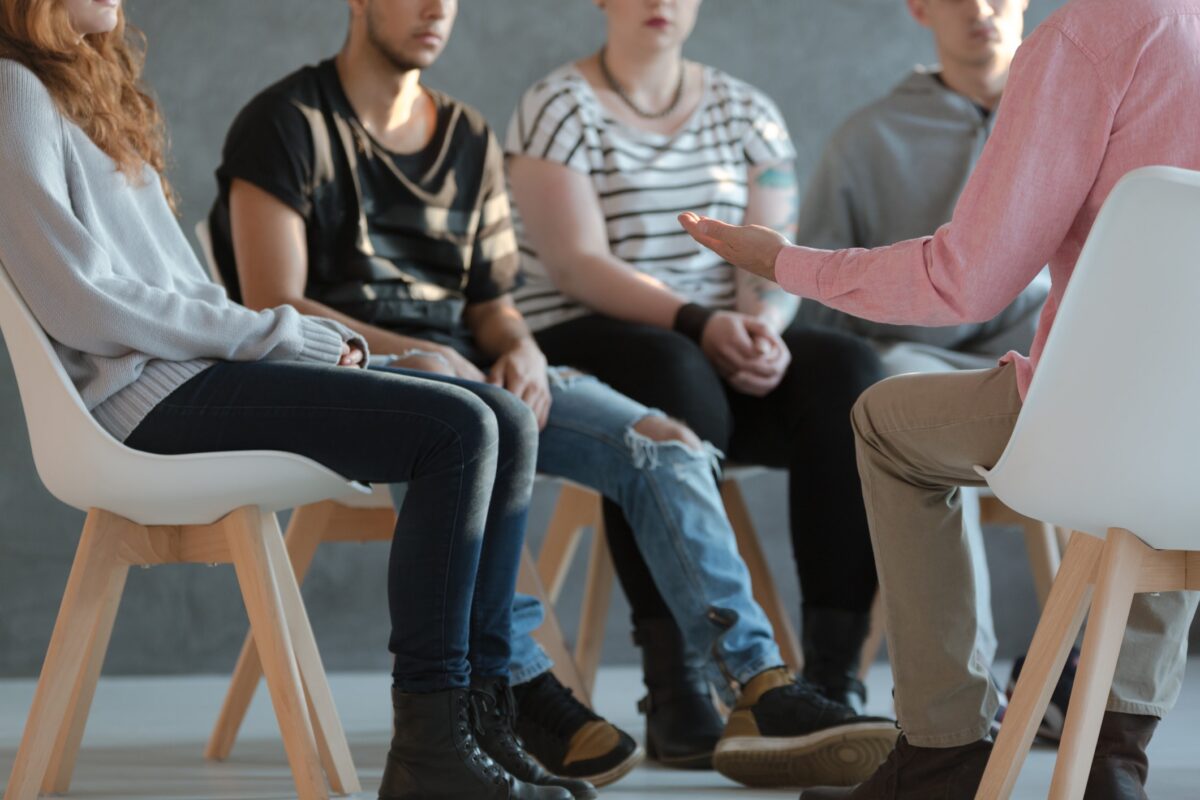The teenage and adolescent years are difficult enough. With all of the ups and downs that kids experience daily, the last thing they need is a dependency problem. When this happens, mental health and substance abuse can impact the family unit.
In many cases, it doesn’t stop there. Many times the toll substance abuse and mental disorders take on a young person leads to other mental illnesses, including but not limited to:
- Depression
- Anxiety disorders
- Anti-social behavior
- Trouble in school/behavior disorders
- Suicidal thoughts or thoughts of violence
- Involvement in fights with family or others
Interpersonal relationships can suffer due to the stress of the problem and the added issues due to a dual diagnosis.
What is a Dual Diagnosis?
A Dual Diagnosis is when at least 2 comorbid conditions occur concurrently or at the same time. This complicates the issue immensely. It also means that, not only does the substance abuse have to be controlled and treated, but the mental health disorder arising from the situation does, too.
The key problem with dual diagnosis is that mental health professionals sometimes treat the mental illness alone and not the substance abuse disorder. It is important to know the warning signs and treat the whole person and choose a treatment center that addresses both equally and understands how they work together.
In young adults, oftentimes the substance use is purely an unhealthy coping mechanism for underlying mental health problems such as depression, anxiety, or post traumatic stress disorder. Treating the mental health conditions is necessary if the young person is going to recover and move in a positive direction.
Where to Start
Once your child has been diagnosed with a Dual Diagnosis, the first thing to do is to get informed. The more information you have about your child’s mental health problem, the more equipped you are to handle it. Remember that it’s not a sign of weakness to ask for help from other parents or people who have dealt with this problem professionally for many years. Professional substance abuse rehabilitation clinics that specialize in dual diagnosis are best.
Get Help as Soon as Possible
Once it has been determined that your child has this disorder, there is no time to waste. You should make getting professional help a priority so that your child will get the help they need. Imagining that perhaps they can get over it on their own is futile. You can’t perform some magic to heal your child. It’s not your fault. There are those who have dedicated their lives to helping families with this same problem.
The only thing that can happen if you wait to connect with a mental health professional is that it will get worse.
It’s Not Your Fault
As mentioned before, when a child has a substance abuse disorder or a Dual Diagnosis, it’s easy to think that somehow it is your fault as their parent or guardian. Don’t. There are many reasons kids get involved in drugs, usually stemming from mental health problems, and these are not your fault. Some young people shut out their families and learn to hide their behavior well. It’s not your fault. Just focus on solving the problem.
How to Support a Child with Dual Diagnosis and Substance Abuse
The most critical role that you play as a parent of a child with dual diagnosis is to love them unconditionally. If things have gotten to the point of problematic substance use, your child’s ability to solve things on their own is probably nonexistent. They will need all of the support possible from their loved ones, as well as clear boundaries and professional help.
Approaching the issue with love and boundaries is key. Bringing in a professional who has the ability to evaluate the situation, conduct an interview, and ultimately introduce a solution is also paramount in order to help your child heal. Your own mental health will certainly benefit as well from this approach.
Find a Mental Health and Substance Use Professional
Healing starts by finding an expert who can help. Since 1985, New Life House has helped guide families on a path of healing, even if their loved on is not a candidate for our own programs. Whether you have a son or daughter, regardless of the age or mood disorders present, regardless of how intense or mild the substance use, give us a call!
We are here to help and have spent years honing our craft and helping both families and their sons adopt new coping skills, introduce new tools, and overcome the mental health and substance use issues that they are adversely affected by. Proper treatment is key, and we are here to help you find the right fit for you and your family members.
How to Choose a Facility
When the loved one in question is a son or daughter, you want to make sure that the program you choose offers a comprehensive family program. Family counseling, groups, and other important components are key in order to help a young adult heal. New Life House specifically has a robust family program that incorporates family meetings, regular updates, emotional work, and guidance in facilitating the family restoration that is so important when healing from mental health and substance use struggles. With young adults, a family must be involved in the healing process for optimal outcomes.
We teach strategies in dealing with substance abuse and dual diagnosis and help our young men learn ways of interacting with their families that are productive and positive, to replace the old behaviors that did not work. Practicing these new behaviors is key, as behavioral problems are one of the most detrimental issues that come along with substance and mental health struggles. By living in a structured environment that provides support, accountability, and comprehensive professional involvement, young men are able to heal in a safe environment and leave the program much more equipped to navigate their life as it progresses and grows.

Teaching Skills to Cope with Conflict
One of the most valuable things you will be shown is that there are better ways of dealing with conflict and how to support your young person through the crisis. Remember, the most important thing is first that they successfully heal and second, that they never fall into the negative patterns again that led them to their abuse.
New Friends, New Lives
One of the most difficult things for young people to realize is that it is sometimes their old friends that helped them get into their pattern of behavior with substance abuse. In some cases, this can mean severing all ties with those people, and finding all new friends who are either also recovering from substance abuse and mental health or can be the light you need to avoid the bad decisions.
This is a huge component of the New Life House process. Instilling a sense of camaraderie and empowering a peer community is one of the things that separates us from the numerous programs out there – we have hundreds of active alumni who engage with our residents and make new members feel at home.
Parents as the Guide
Remember, even if your son or daughter is highly resistant to getting help, they look to you for guidance, even if there have been conflicts before. Focusing on being a parent, not a friend, is key when overcoming mental health challenges.
The rehabilitation process is not a quick one – human beings are not cars that can be put through a carwash. Understanding and expecting the process to take time is very important when embarking on this journey.
That attitude, with the help of expert professionals and clinicians, can help your child (and your whole family) find the way back.
One step at a time.

